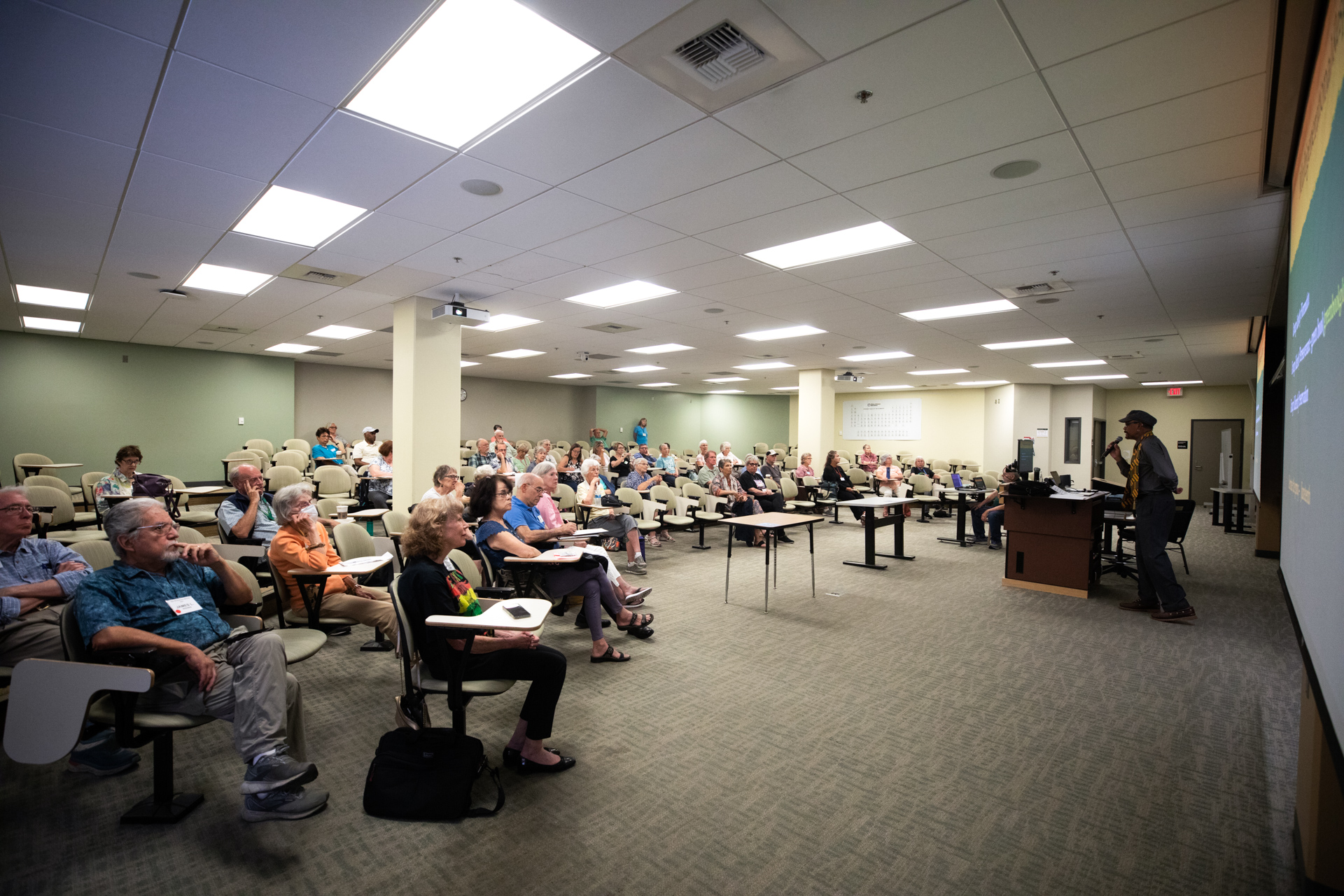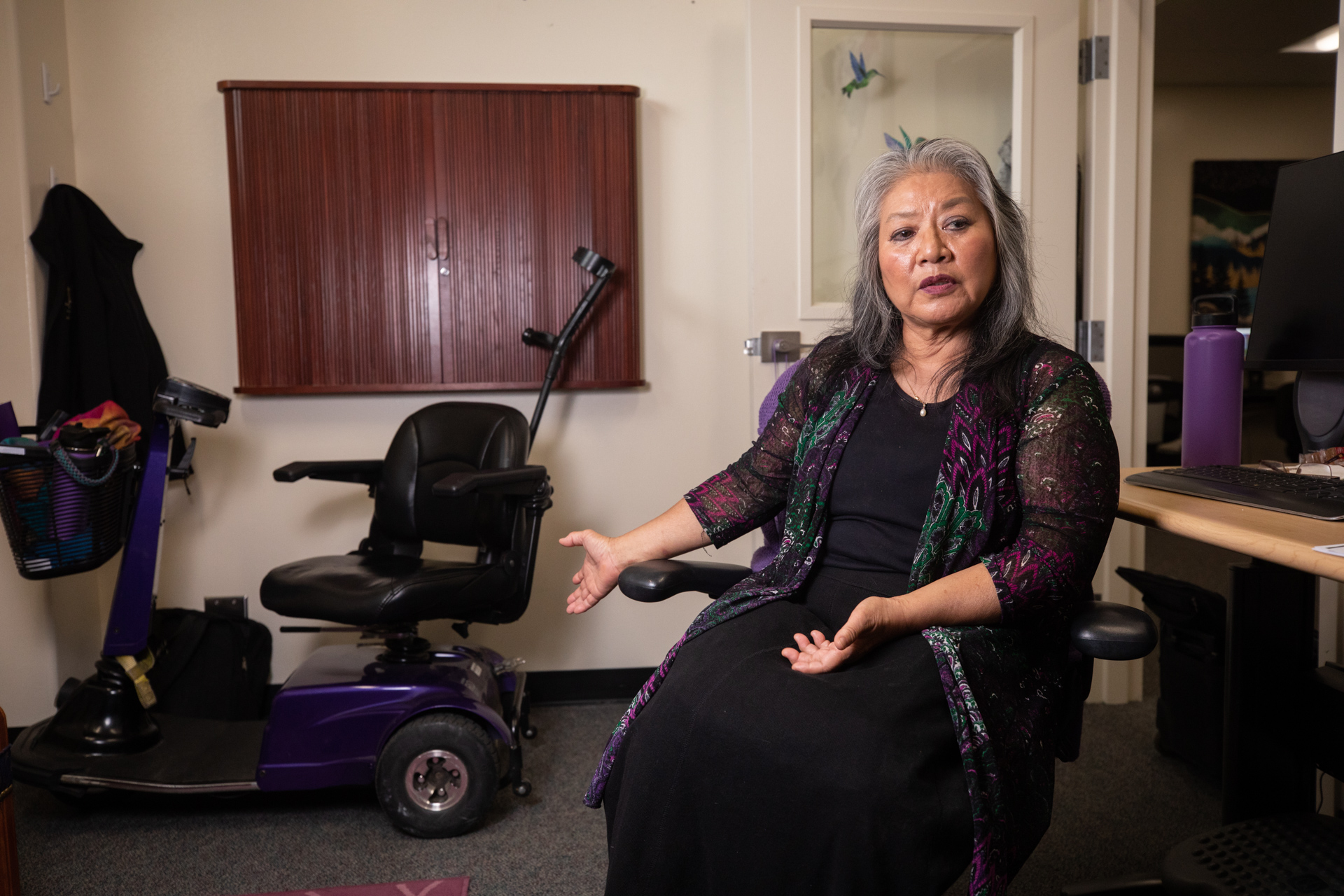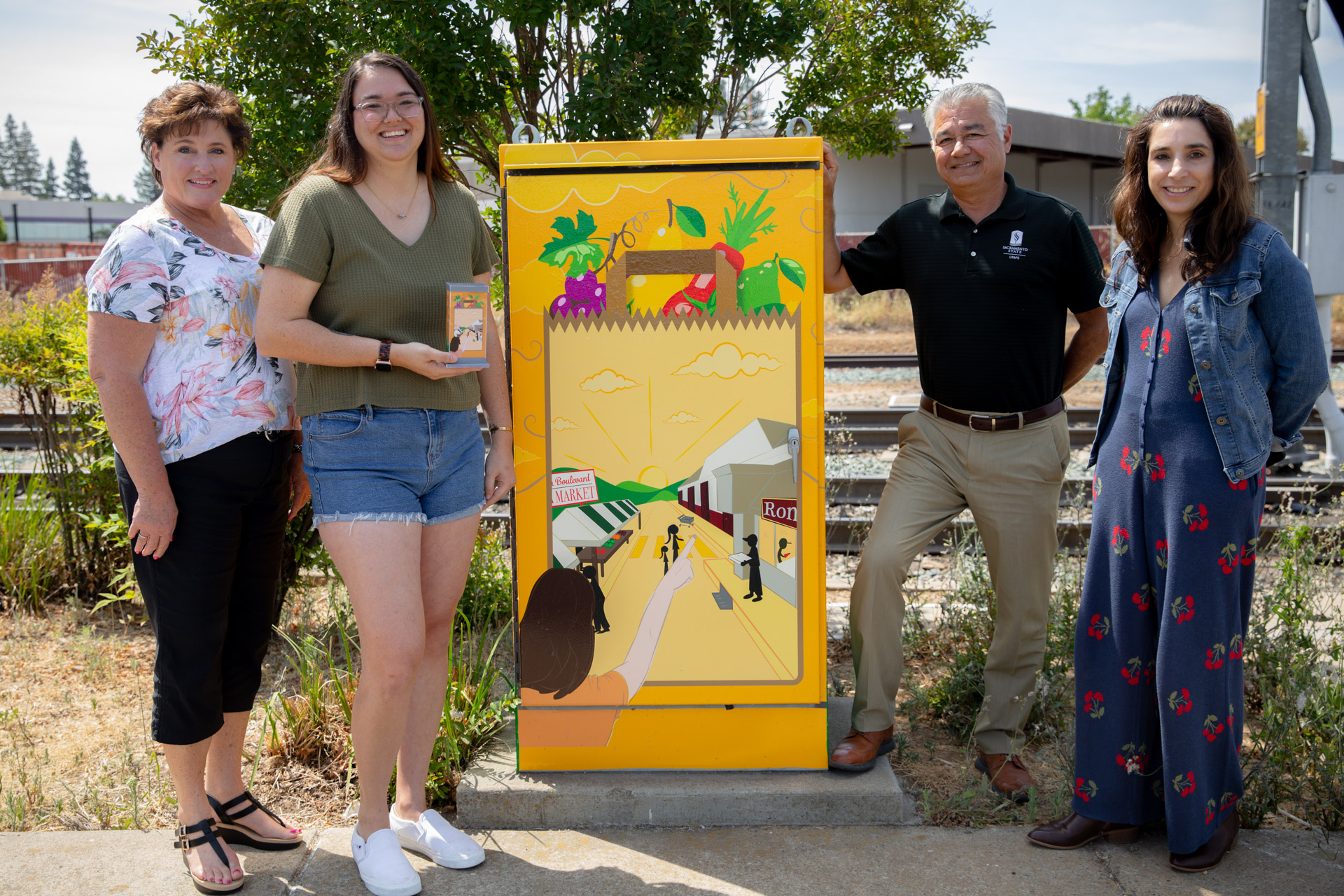Story Content
Sac State receives $6.5 million from state to boost early childhood education in the region
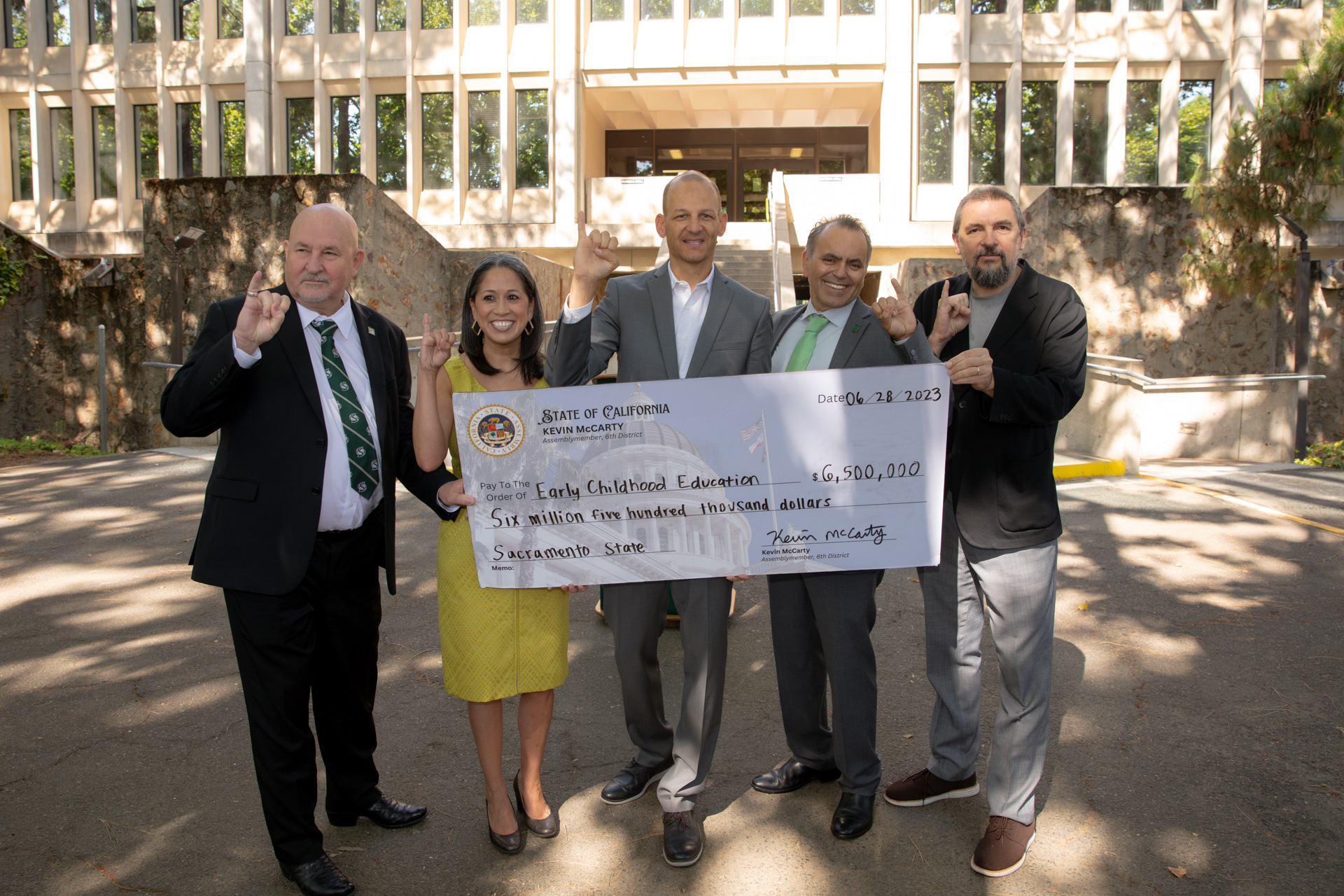
June 29, 2023
Sacramento State’s efforts to improve education for the region’s youngest students received a major boost this week, thanks to $6.5 million in new state funding to create a new center for early childhood education.
The Innovation Center for Early Childhood Education, which will be housed in the College of Education, will better prepare teachers to work with preschool through third-grade students and help expand and improve existing preschool and transitional kindergarten (TK) programs in Sacramento.
California Assemblymember Kevin McCarty on June 28 presented Sac State President Robert S. Nelsen with a check for the funding, which will be used to launch the center, potentially as early as fall 2023.
“We’ve always been hands on. That’s what makes us different, what makes us unique in what we’re trying to do,” Nelsen said. “Our students will be working with students in their schools from the very beginning.
“As I leave this University, I feel like we’re more embedded in the community. We’re making a difference in the community.”
McCarty said this year’s state budget included money to reinvest in one-time projects in the community. In September, Sac State received $1.4 million to improve the ASI Children’s Center and $300,000 for an artificial intelligence/mixed reality classroom.
“We know from all the research that early childhood education is the number one thing we can do to change a young person’s trajectory to succeed in life,” McCarty said.
“If we want to tackle intergenerational poverty, and improve achievement gaps in high school graduation rates, and even keep kids out of the juvenile justice system, economists say there’s one thing we should do and that’s invest in early childhood education.”
The funding will provide scholarships for students pursuing early childhood education credentials, add classrooms at existing preschool sites, and open offices either downtown or on campus within the College of Education.
“The state is investing a lot of money into early childhood education, and we are in a position to support that effort with our expertise.” -- Sasha Sidorkin, College of Education dean
California recently expanded TK, a program for students who do not meet the age requirement to start kindergarten in the fall, to include all 4-year-olds.
“But all that only works with one thing in place – the teachers,” McCarty said. “That is why this is the glue to hold all this together. … We know Sac State is the people’s university and the pipeline for educators.”
In addition to expanding TK, the state is also placing greater emphasis on early childhood development in credential programs. Currently, elementary school teachers are required to know the basic core subjects such as math, science, language arts and social studies. The new credential requirement will include additional training on child development.
Eventually, teachers working with TK through third-grade students will need an early childhood education credential, College of Education Dean Sasha Sidorkin said.
“The state is investing a lot of money into early childhood education, and we are in a position to support that effort with our expertise,” Sidorkin said. “The long-term plan is for Sac State to be one of the intellectual service providers to support this new policy.”
In addition to preparing future teachers, the new center will have demonstration sites throughout Sacramento that will incorporate research-based practices for inclusive education and for teaching multilingual learners.
Sidorkin said the University is talking with local school districts and the ASI Children’s Center about using their schools as demonstration sites.
“The idea is to have three or four sites where we will help develop better programs, where we can train our student teachers on how to implement the best practices of early childhood education,” Sidorkin said. “We will also use the demonstration sites to run professional development programs for other preschools in the region.”
Sidorkin said early childhood education is the most effective way to improve a child’s life.
“The research in educational economics has been around for decades,” Sidorkin said. “If you intervene earlier in a child’s life and provide a quality preschool program, that evens the odds for kids who come from more disadvantaged backgrounds.
“The quality of a school can really bring everyone up, so it has a large implication for reducing inequality in the education system.”
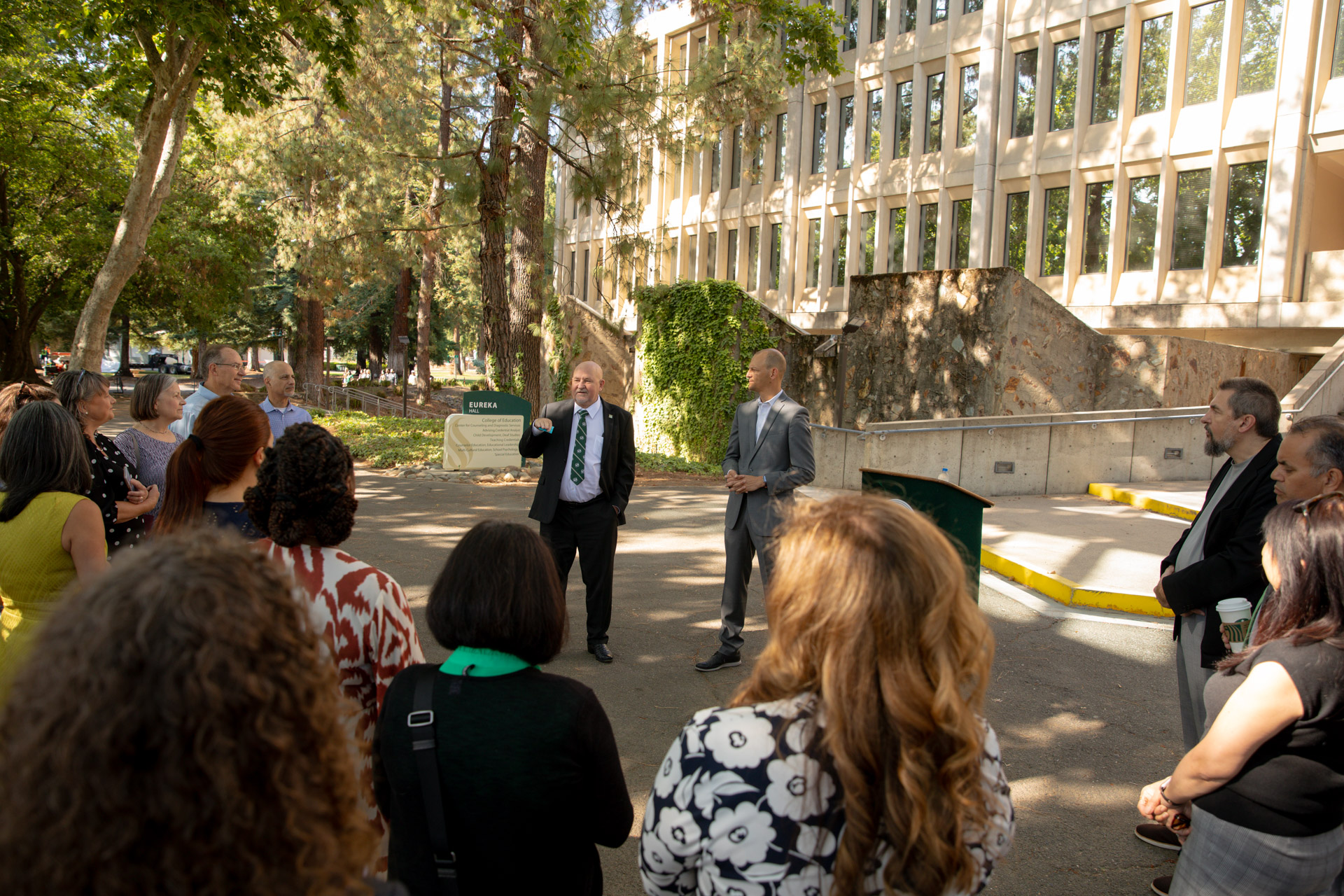
Media Resources
Faculty/Staff Resources
Looking for a Faculty Expert?
Contact University Communications
(916) 217-8366
communications@csus.edu
